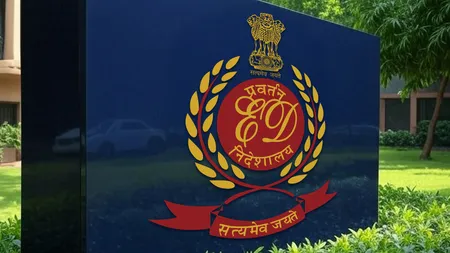Keir Starmer leadership: Who could replace the Labour leader and Prime Minister? Wes Streeting, Andy Burnham
By Andrew J Quinn
Copyright scotsman

When Labour won the general election last year with a 174-seat majority, everyone thought Sir Keir Starmer would be the Prime Minister for years to come. It was generally expected he would remain in office for a full term and then would perhaps step down sometime after the next election. But things have not gone to plan. His government has made a raft of poor decisions and been forced into U-turns in key areas like the winter fuel payment and welfare reform. Nigel Farage’s Reform UK has been ahead in the polls for months and dominated headlines over the summer. The PM has had a rocky September. His deputy Angela Rayner was forced to resign for failing to pay stamp duty, while US ambassador Lord Peter Mandelson was sacked over his relationship with paedophile Jeffrey Epstein. All of these things – but the Lord Mandelson debacle in particular – have caused formerly loyal MPs to question whether Sir Keir is the man to lead the country forward. But who would take over? There is no clear and obvious successor. With Labour conference taking place in Liverpool next week, The Scotsman has taken a detailed look at who could replace Sir Keir as Labour leader and Prime Minister. Wes Streeting The health secretary has been regularly mentioned as a future Labour leader. He’s the most charismatic Cabinet minister, has so far had a good record of reducing NHS waiting lists and his working-class upbringing would resonate with a lot of Labour members. One MP said that allies of Mr Streeting had been putting out feelers to see how strong his support is for months. They added Mr Streeting is always very friendly and will chat to any MP whom he sees. But his reputation as a Blairite is unlikely to go down well with these same members. Most who want the PM out want someone who is not on the Labour right and is not close to Downing Street Chief of Staff Morgan McSweeney. If they want a change in direction, then Mr Streeting would not be the candidate for them. As one MP put it: “Wes’s team have accepted that he will not go down well with the members.” He is also hindered by having a small majority. Mr Streeting only held on to his Ilford North seat by 528 votes last time – with British Palestinian candidate Leanne Mohamad running him close. With the Labour Party more unpopular than it was in July last year, there is a fair chance he will lose his seat at the next election. Shabana Mahmood The new home secretary is highly regarded in the party and will become better known among the membership following her big promotion. She had to deal with overflowing prisons as justice secretary, which left her with no option but to order the early release of prisoners. But she is regarded as having turned this into an opportunity by ordering a sentencing review, which will mostly abolish short sentences and reduce the amount of their sentence people spend in prison. But Ms Mahmood also launched plans to expand the chemical castration of sex offenders, which earned her big media attention. Along with Mr Streeting, Ms Mahmood is one of the few Labour ministers who have had a successful year in office. But she faces similar problems. Her appointment as home secretary was seen as a win for Mr McSweeney as she is on the Labour right. Ms Mahmood is also at risk of losing her Birmingham Ladywood seat – although she does have a majority of more than 3,000. It is hard to see the Labour membership backing her – and she does not have the gift of the gab in the same way that Mr Streeting does. Bridget Phillipson The education secretary is running for the party’s deputy leadership and won the most endorsements from her MP colleagues. Ms Phillipson is not seen as an ally of Mr McSweeney – with her allies defending her against “sexist” briefings from within No 10 that she was going to be ousted in the reshuffle. She is from a working-class background in the north-east of England, which should also appeal to the membership. Ms Phillipson’s drawback is that she is not a hugely charismatic character who would inspire the party base. She may not be someone who has set the world alight, but her record as education secretary is generally favourable. Ms Phillipson is polling well behind in the deputy leadership race. If she manages to turn it around, it will increase her profile among the members. Her personality would not inspire members – but if there are few candidates in the running, she could end up winning simply by being the biggest name. Angela Rayner Until she was forced to resign earlier this month, Angela Rayner was probably the favourite to take over from Sir Keir as Labour leader. Her personal story and character make her popular among Labour members and the public. She is also on the soft left section of the party, which again would appeal to those choosing the next leader. Ms Rayner is from a working-class background, leaving school at 16 whilst pregnant. She worked as a care worker and then became a trade union representative before becoming an MP in 2015. She held several shadow Cabinet positions under Jeremy Corbyn before becoming deputy Labour leader in 2020. After the general election, she was made Deputy Prime Minister and housing secretary. But the big problem for her is she had to resign after breaking the ministerial code by underpaying stamp duty by £40,000 on house purchase. Although this scandal forced her to leave government, it does not mean there is no way back for Ms Rayner. If she manages to retain a high profile or returns to office, she could still run. Not many would fancy their chances of beating Ms Rayner if it goes to a membership vote. Andy Burnham Greater Manchester Mayor Andy Burnham is regularly tipped as a future Labour leader – in part because he has already unsuccessfully stood for the leadership twice. Mr Burnham was a Labour MP between 2001 and 2017, serving in the Cabinet for three years under Gordon Brown – including as health secretary. After losing to Ed Miliband in the 2010 leadership contest, Mr Burnham served as shadow education secretary and shadow health secretary. He came a distant second to Mr Corbyn in the 2015 leadership contest and served as shadow home secretary for a year before running for Manchester Mayor. Mr Burnham has been one of the few senior Labour figures to openly criticise Sir Keir and his work in Manchester has seen him dubbed ‘The King of the North’. Despite having worked almost his entire career in politics, Mr Burnham has managed to maintain popularity with the public as being different to most politicians. His main issue is he is not an MP, but there are a couple of MPs who could step down in the near future to let him into the Commons. A harder task than winning the leadership could be beating Reform UK in a by-election. Would Mr Burnham want to risk that when he still has three years left in his term as Mayor? Lucy Powell Lucy Powell would be a real outsider, but as the favourite in the deputy leadership contest, she cannot be ruled out. After being sacked as Leader of the Commons earlier this month, Ms Powell has managed to put herself forward as the non-government candidate in the bid to replace Ms Rayner. This makes her likely to win because the membership is expected to give the UK government a kicking. She is well-known among the 2024 intake of MPs for answering questions in the chamber about Commons business every Thursday. Ms Powell is not well-known among the public, but if she becomes a prominent Labour critic of the UK government, then she could become a darling in the eyes of the membership. No Scottish contenders It is very unlikely the next Labour leader will come from north of the Border. Ian Murray was the party’s only Scottish MP this time two years ago. The Edinburgh South MP stood for the deputy leadership in 2020, but finished fourth with less than 15 per cent of the vote. He would always have had very little chance of leading the party, but has even less of a chance after he was sacked as Scottish Secretary last month. Although this is very unlikely, his replacement Douglas Alexander would be the leading candidate among the Scottish MPs. He is the only Scot in the Cabinet and has nine years of government experience. He was also shadow foreign secretary when Mr Miliband was Labour leader. He may have nearly two decades of experience as an MP, but he only recently returned to Parliament after being out of it for nine years. Something crazy would have to happen for Mr Alexander to be the next Labour leader.



